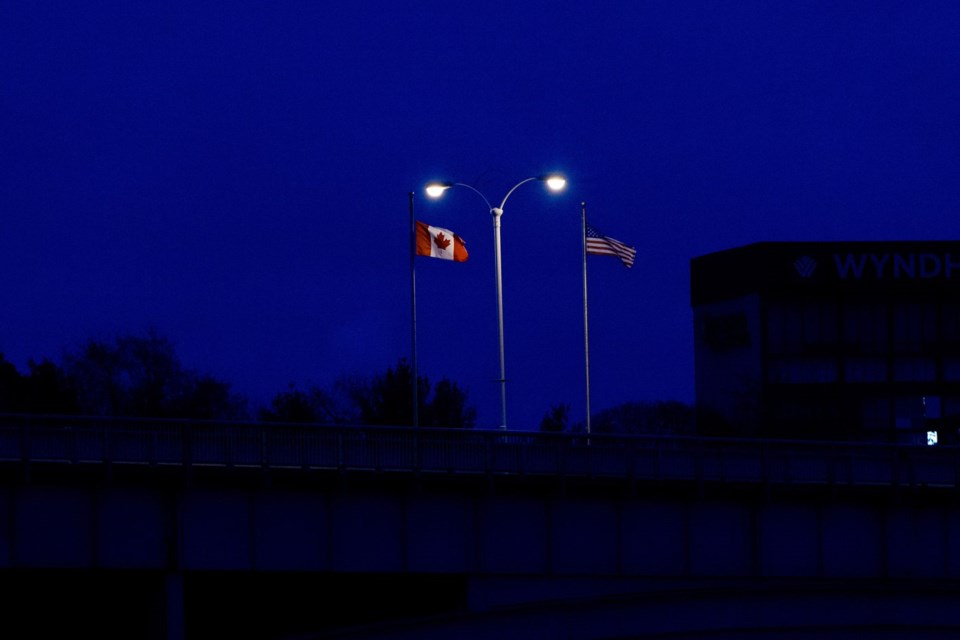FREDERICTON — A gathering of religious groups from across North America that was supposed to be held this year in Nova Scotia has been postponed indefinitely because of worries over U.S. border policies.
The annual conference of the North American Interfaith Network, which brings together people of various religions, was scheduled to be held in Wolfville, N.S. in August. But it has been called off after participants said they were not comfortable having to go back and forth across the U.S. border.
Rob Hankinson, a retired United Church minister and co-ordinator of the conference, said that in early February he asked nearly 120 people who had planned to attend from the United States and Mexico whether President Donald Trump’s policies were making them reconsider.
Most responded that they were unable to commit to attending because of the "uncertainties of the times," he said in an interview Tuesday.
"I did not want to put our friends and colleagues from the United States and Mexico in jeopardy because of the current situation. It's ironic and sad," he said. The conference title was going to be "Mending our World Together: Interfaith Responses to Social Justice Issues," a theme that he said is now more important than ever.
Since taking office in January, Trump has led a crackdown on immigration, and has cited a seldom-invoked statute to expel non-citizens from the country if their presence was deemed a threat to U.S. foreign policy interests.
Organizers of a Moving Trans History Forward conference that opened in British Columbia last week were expecting a 40 per cent drop in attendance because American participants were worried about encountering problems when they returned to the United States. The U.S. State Department has said it will issue travel documents with an "M" or "F" sex marker matching the person's "biological sex" at birth and stop providing passports to nonbinary people who prefer their gender marked with "X."
The Aug. 3-7 conference in Nova Scotia would have been the network's first in-person edition since the COVID-19 pandemic hit. Typically it brings together North Americans of all faiths, and Hankinson said that for the last decade it has included people who do not profess faith but are "committed to peace and justice and compassion and human dignity."
He noted that some faith groups, such as Muslims, may feel the strain of tighter borders more than others. Trump imposed a ban on travel from several mostly Muslim countries during his first term. Former president Joe Biden repealed the ban in 2021.
Andrea Parker, of Charlotte, N.C., was scheduled to be at the conference in Nova Scotia.
She is saddened that "a celebration of different faiths coming together to appreciate the diversity, equity and inclusion" that they bring had to be postponed indefinitely because of the current political climate in the U.S.
Even though she is an American, she said she was concerned about crossing the border back home to the U.S. after attending the conference.
"The conference is in August. We're in April right now," she said. "There's no telling what's going to happen over the next four months. The situation could be even worse than right now."
John Pinter, executive director of the United Religious Community of St. Joseph County in Â鶹´«Ã½AV Bend, Ind., had been scheduled to attend the conference. At first, he was surprised to hear about border concerns, but he said he understands better after hearing of people's issues re-entering the United States.
"I'm probably sixth-generation, white male. I'm not worrying about it myself too much," he said. But he recognizes there is a strong correlation between certain religious traditions and the likelihood of being born overseas or being a first- or second-generation American.
"That's true for Sikhs. That's true for Muslims," he said, adding that visible minorities would likely face more questions or hindrances when trying to get back into the United States.
Interfaith gatherings, he said are important because they help in sharing ideas and fostering resiliency in communities, especially during emergencies.
"It would have been a chance to bring a couple hundred people together, enjoy each other for a week, learn from each other, and then hopefully become part of a diaspora of people that have been positively impacted by that program," Pinter said.
"It's unfortunate that's not going to happen, and I worry that's being repeated in a lot of different ways, of people just avoiding — kind of withdrawing into their safe zone."
This report by The Canadian Press was first published April 2, 2025.
— With files from The Associated Press
Hina Alam, The Canadian Press




